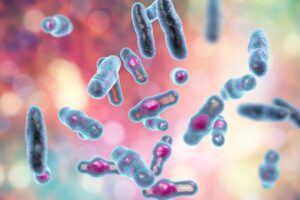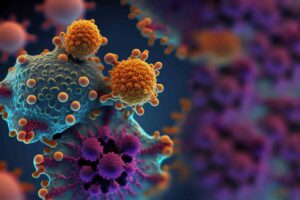gut microbiota
Scientific research, Video
Francesco Peri, full professor at University of Milano-Bicocca, discussed the role of gut microbiome as new frontier for personalized medicine.
Gastroenterology, Pediatrics
A recent study shows that microbiota maturation during weaning contributes to normal immune development and protection from infection.
Gastroenterology, Neuroscience
ETX-producing C. perfringens strains are biologically plausible pathogens in MS that trigger inflammatory demyelination.
Scientific research, Video
During MicrobiotaMI congress we discussed with Jun Huh, Associate Professor at Harvard University, about the research on microbiome.
Industry
This partnership aims to leverage Microba's advanced technology platform for measuring the human gut microbiome to discover novel biomarkers for pancreatic cancer detection.
Gastroenterology, Oncology
The findings of a recent study identified microbiota signatures that may allow clinicians to predict the outcomes of CAR-T immunotherapy.
Gastroenterology, Geriatrics
The findings of a recent study reveal that P. distasonis and its metabolites could be promising candidates for treating RA.
Oncology, Scientific research
Microbiomepost discussed with Lorella Tripodi, University Federico II of Naples, about the research she is working with her colleagues.
Gastroenterology, Nutrition
Diet-induced changes in the gut microbiota confer protection against respiratory infections by regulating the development of key components of the immune system.
Gastroenterology, Oncology
Numerous evidences demonstrate the involvement of the sex hormone-gut microbiome axis in regulating the antitumor efficacy of ICIs.











